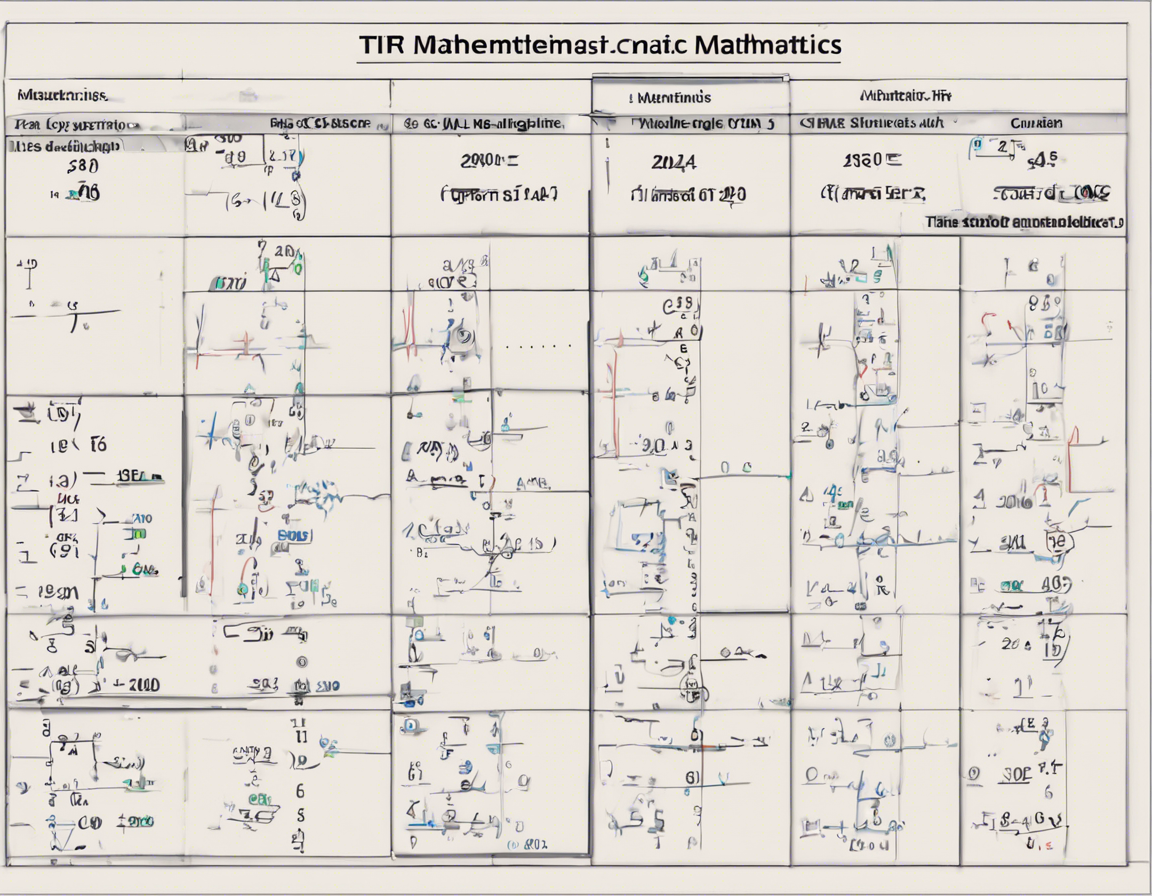The Tata Institute of Fundamental Research Graduate School Admissions Test, commonly known as TIFR GS, is an entrance exam conducted for admission to various Ph.D. and Integrated Ph.D. programs in Mathematics, Physics, Chemistry, Biology, Computer and Systems Sciences, and Science Education at TIFR and other participating institutions. It is a highly competitive exam that tests candidates on their mathematical problem-solving abilities and analytical skills. In this article, we will focus on cracking the TIFR GS Mathematics exam specifically. Here are some tips and strategies to help you prepare effectively for the exam:
Understanding the Syllabus:
The first step in preparing for any exam is to understand the syllabus thoroughly. The TIFR GS Mathematics exam syllabus covers topics such as Linear Algebra, Real Analysis, Complex Analysis, Algebra, Topology, Differential Geometry, and Probability Theory. Make sure you are familiar with all these topics and focus your preparation accordingly.
Practice Regularly:
Practice is key when it comes to Mathematics exams. Solve as many previous years’ question papers and sample papers as you can to get a hang of the exam pattern and types of questions asked. This will also help you improve your time management skills.
Strengthen Your Basics:
Before diving into advanced topics, make sure your basics are clear. Focus on building a strong foundation in topics such as Calculus, Algebra, and Geometry as they form the basis of many advanced mathematical concepts.
Create a Study Plan:
Organize your study schedule and allocate time for each topic based on your strengths and weaknesses. Make a daily, weekly, and monthly study plan and stick to it religiously.
Seek Help When Needed:
If you come across any difficult topics or concepts that you are not able to understand, do not hesitate to seek help from your teachers, peers, or online resources. Join study groups or online forums to discuss problems and clarify doubts.
Mock Tests and Revision:
Give regular mock tests to assess your preparation level and identify areas that need more focus. Revision is also crucial, so make sure to revise all the topics multiple times before the exam.
Stay Calm and Positive:
Lastly, stay calm and positive throughout your preparation journey. Avoid last-minute cramming and maintain a healthy lifestyle with proper diet and sleep to keep your mind fresh and focused.
FAQs:
-
What is the exam pattern for TIFR GS Mathematics?
The TIFR GS Mathematics exam consists of two parts – Part A and Part B. Part A is multiple choice questions, while Part B is subjective. The total duration of the exam is typically around 3 hours. -
Is there negative marking in the exam?
Yes, there is negative marking in the exam. For each incorrect answer, 1/3rd of the marks allotted to that question will be deducted. -
Can engineering students apply for the TIFR GS Mathematics exam?
Yes, engineering students with a strong background in mathematics can apply for the TIFR GS Mathematics exam. -
Is coaching necessary for TIFR GS Mathematics preparation?
While coaching can be helpful, it is not mandatory. With self-discipline, the right study material, and consistent practice, one can prepare for the exam effectively without coaching. -
How can I improve my problem-solving skills for the exam?
To improve your problem-solving skills, solve as many mathematical problems as you can from a variety of sources. Practice regularly and analyze your mistakes to learn from them.
By following these tips and strategies, you can streamline your preparation for the TIFR GS Mathematics exam and increase your chances of success. Remember, consistent effort and dedication are the keys to cracking any competitive exam.
